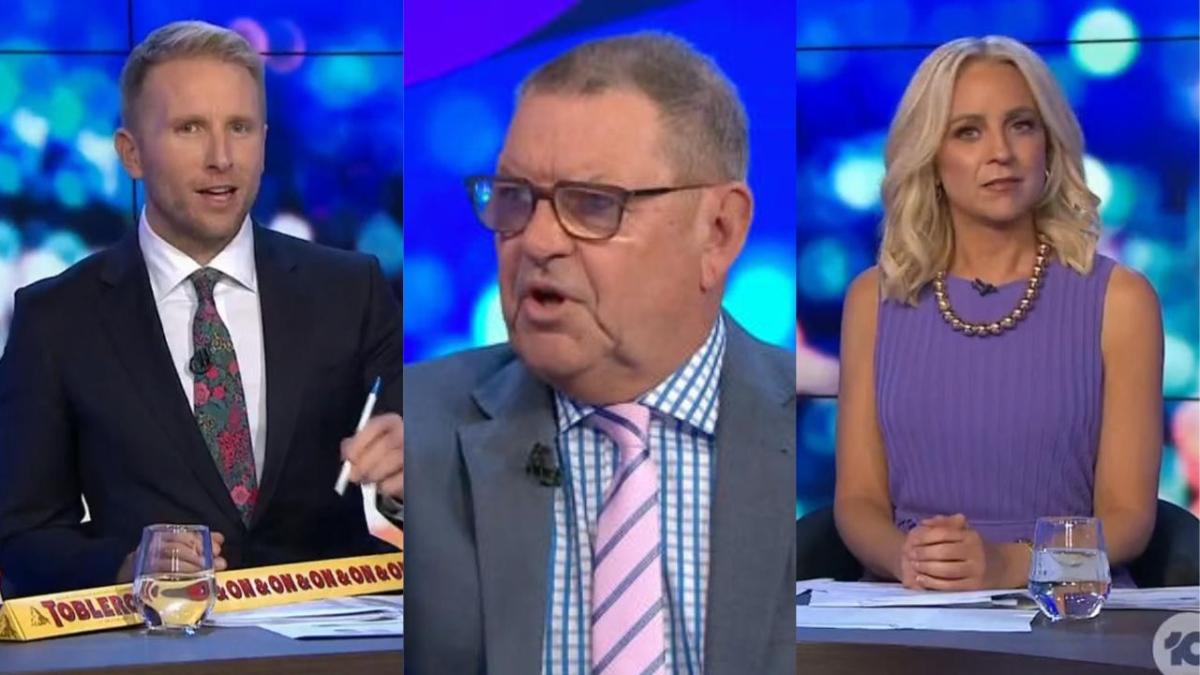
In case you missed it, The Project aired a conversation about whether or not we should have a referendum to see the Aboriginal flag become the national flag. Problem is, they had the entire convo with an all-white panel.
“In 2022, it is just not acceptable for a mainstream news program to discuss First Nations topics when the people on the panel are all non-Indigenous,” Gomeroi woman Rachael McPhail told PEDESTRIAN.TV.
Carrie Bickmore, Hamish Macdonald, Peter Helliar and opinionated bullfrog Steve Price all sat down to discuss the issue on Tuesday night.
Unsurprisingly, the conversation quickly turned sour when Price immediately rejected the idea and started spouting nonsense about how “Australians support the flag they’ve got” and that the country’s opinion on the matter will never change.
Instead of going for a stimulating conversation on the issue, The Project opted to give no platform or voice to First Nations people at all. You know, the people who this issue is directly about? Steve Price constantly believes he is the voice of all of Australia, and it’s so tiring to constantly see him get a spot on TV, especially given his history of racist remarks (which are usually made on the show).
Rachael McPhail, founder of Place Names In Addresses, shared a clip from the discussion to her Instagram page, which as you will see, was truncated by Price’s blunt idiocy.
In the caption, McPhail called out The Project for creating a “culturally unsafe space” with their all-white panel.
“How can he so decidedly say no on behalf of more than 20 million people???? It blows my mind. That’s what happens when you live in a vacuum of opinions,” wrote one commenter.
“To them, it’s just debate fodder. So disrespectful, privileged and harmful,” wrote another.
We spoke to McPhail about The Project‘s lack of diverse voices, and how presenting an all-white panel to talk about First Nations issues is harmful and backwards.
“When Indigenous social justice topics, such as the Aboriginal flag, are being scheduled for discussion on a news program, and then someone with views like Steve Price is booked in a spot on that panel, it actually creates a really culturally unsafe space. The media needs to show some responsibility for this dangerous paternalism, and do better.
“It is really harmful to the First Nations community for people with racially oppressive views to be consistently given a platform to shut down any progress that we are making towards First Nations social justice.
“It’s not fair for our kids to hear an old white man saying that the only flag that matters is the Australian flag on a mainstream, prime-time news program. Our kids should be hearing the message that we, as a nation, are proud of the Aboriginal and Torres Strait Island flags, so they feel proud too!”
McPhail brought up Steve Price’s treatment of Baker Boy (Danzal James Baker) in their 2019 interview after the singer won the Young Australian of the Year award as an example of why he isn’t exactly the person they should be reaching out to talk about First Nations issues.
She said Price’s questions were intimidating and made Baker Boy very uncomfortable. Really the whole situation could have been handled with more care and grace.
“A person with much more cultural humility would have known about the high level of suicide rates amongst Indigenous youth, and understood what it meant to Danzal to be given that opportunity to speak on that platform, to be a representative and role model for his community, and show kids that life is worth living,” said McPhail.
“We shouldn’t have to keep being exposed to such oppressive and culturally unsafe content on our televisions.”
So, what should The Project and other television programs do to help platform First Nations voices?
“Imagine how amazing it would be if a show like The Project, on a mainstream channel with a huge platform of viewers, dedicated one night per week to having an entirely First Nations panel,” said McPhail.
“They could discuss Indigenous social justice issues in a culturally safe space, plus talk about Blak excellence and all the positives that are going on in our community as well.
“Or alternatively, hire a First Nations person as one of the main hosts of the show so they’re on the panel every night, and ensure that if an Indigenous social justice topic is to be discussed, then there are two or more First Nations people on the panel that particular night.
“This is how you use your platform to help raise the collective understanding of an entire country and create culturally safe spaces for mob to thrive.”
There’s still so much we can be doing to use our platforms to help platform First Nations people. An all-white panel is not even close to where we should be at by now.



